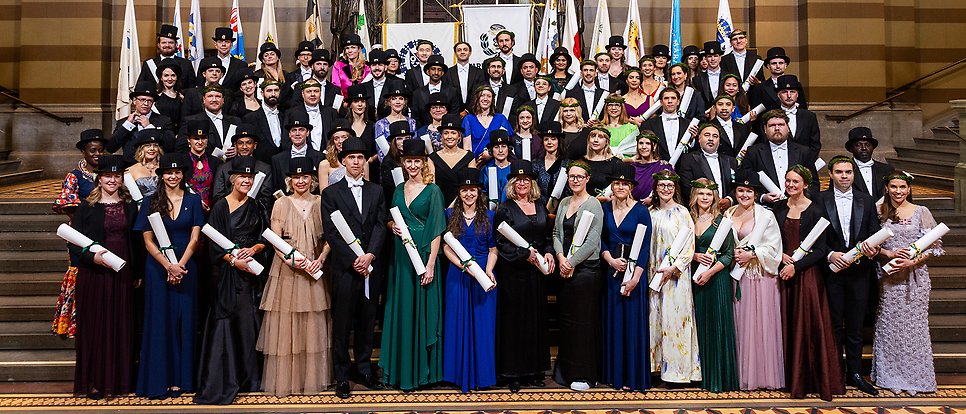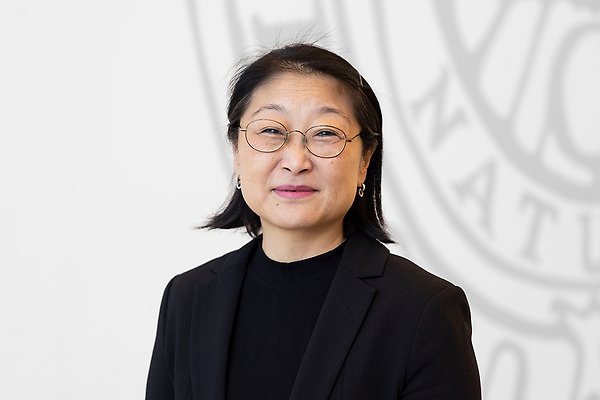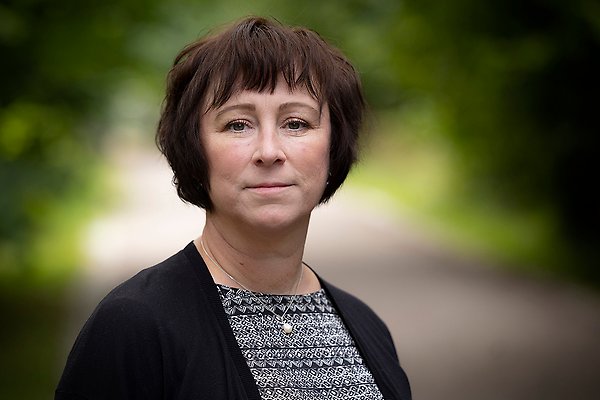Proposed equal opportunities programme

A proposed equal opportunities programme highlights measures to promote equal rights and opportunities for all at Uppsala University. The picture is from the Doctoral Degree Conferment Ceremony on 26 January 2024. Photo: Tobias Sterner.
A proposed equal opportunities programme has been drafted. The fundamental idea is that promoting equal rights and opportunities for all creates a basis for creativity, renewal and innovative thinking.
“It’s important that everyone at the University feels included and respected. Promoting equal opportunities is not just a matter of complying with laws and rules, it’s about creating a culture in which everyone thrives and can develop, because that is a prerequisite for being a world-leading university,” says Deputy Vice-Chancellor Coco Norén.

Coco Norén, Deputy Vice-Chancellor. Photo: Mikael Wallerstedt.
The Advisory Board for Equal Opportunities has drafted a proposed equal opportunities programme, which has been circulated internally at the University for comments.
“Uppsala University sees equal opportunities as a fundamental right for all. It’s a matter of creating an environment for work and study where everyone feels welcome and has the same opportunities, regardless of background. By promoting equal rights and opportunities, the University will be able to benefit from a broader range of skills and experiences, which in turn will raise the quality of both education and research,” says Åsa Cajander, Adviser to the Vice-Chancellor on Equal Opportunities and chair of the Advisory Board for Equal Opportunities.

Åsa Cajander, Adviser to the Vice-Chancellor on Equal Opportunities. Photo: Mikael Wallerstedt.
The proposed equal opportunities programme is intended to give direction and structure to long-term efforts in the area of equal opportunities. ‘Equal opportunities’ is an umbrella concept covering active measures under the Discrimination Act, widening participation, gender mainstreaming and more. There are already a number of governance documents for different areas of equal opportunities, for example a Work Environment and Equal Opportunities Policy, a Gender Mainstreaming Plan and the Staff Policy.
“A specific programme for equal opportunities is necessary to provide an overall picture of the measures and initiatives that are needed. The programme connects and clarifies equal opportunities actions, which will help ensure that these are treated coherently and conducted towards the same overall goal for the entire University,” Cajander explains.
Divided into four areas
The proposed programme is divided into four areas:
- inclusive culture
- attractive higher education institution
- attractive employer
- active measures.
A national study of gender-based victimisation and sexual harassment indicates that it is mainly co-workers and students who subject one another to bullying and sexual harassment. The area of inclusive culture in the programme therefore focuses on measures to prevent various types of victimisation.
“One area I consider particularly important to highlight is initiatives to increase equality between people born in Sweden and people born in other countries. By making managers, leaders and members of staff aware of the risks of unconscious discrimination and offering training in this area, the University can lower barriers and improve the sense of belonging. This will not only enhance students’ and employees’ individual experience, it will also enrich the University as a whole through a greater diversity of perspectives and experiences in teaching and research,” Cajander says.
The programme’s proposals include information and training with a focus on the risk of unconsciously creating inequalities between the study and work environments of people born in Sweden and people born in other countries.
The University will also offer bystander training aimed at providing tools for identifying, responding to and preventing various types of offensive behaviour.
Focus on students
The focus in the second area is on measures linked to the Discrimination Act and targeting students. The measures range across widening participation, the study environment, parenthood, instruction formats and assessments.
Under this point, the programme proposes, among other things, that equal opportunities perspectives be integrated into the design and implementation of educational programmes and courses and that the University should have processes and procedures to prevent examinations and assessments from being consciously or unconsciously influenced by irrelevant factors such as grounds for discrimination.
Focus on staff
The third area also focuses on the Discrimination Act, but in this case the measures target members of staff, taking in aspects such as terms of employment, promotion, continuing professional development and parenthood.
In this area the programme addresses, for example, the continuous work of a survey and analysis of rules and practices for pay and other terms of employment, by legal gender. Any unfair pay differences based on legal gender and gender bias will be addressed.
Develop methods
The last part of the programme – active measures – contains proposals to develop methods and approaches for the University’s work on equal opportunities and to clarify and give cohesion to equal opportunities activities.
The programme proposes, among other things, that the University should develop the use of existing surveys and follow-ups – such as research and education evaluations, alumni studies and surveys – to provide a better basis for analyses and measures in promoting equal opportunities.
Next steps
The proposed equal opportunities programme can be read here (not available in English).
Open seminars on the proposal will be conducted in September 2024. There will be three seminars on 9 September in different locations and one via Zoom on 16 September. Times and venues will be announced in the internal events listings.
After 4 October 2024, when the internal consultation period ends, the comments received will be reviewed and the proposal may be revised before it is ready for decision and implementation.
Update 24 JUNE 2024: The consultation period is extended until 1 November 2024.
“This programme is an important part of the work on equal opportunities, but I would also like to take this opportunity to highlight the equal opportunities groups across the University. They are a support to heads of department and other managers and make an important and fantastic contribution to improving our education and research,” Norén concludes.
Anders Berndt
Read more
Foreign-born people more exposed to harassment and bullying, news item, 6 May 2024
Measures are needed to reduce bullying and sexual harassment, news item, 20 May 2022
Learning more about students’ backgrounds
Sustainable work environment for all, information on the intranet
Advisory Board for Equal Opportunities, information on the intranet
